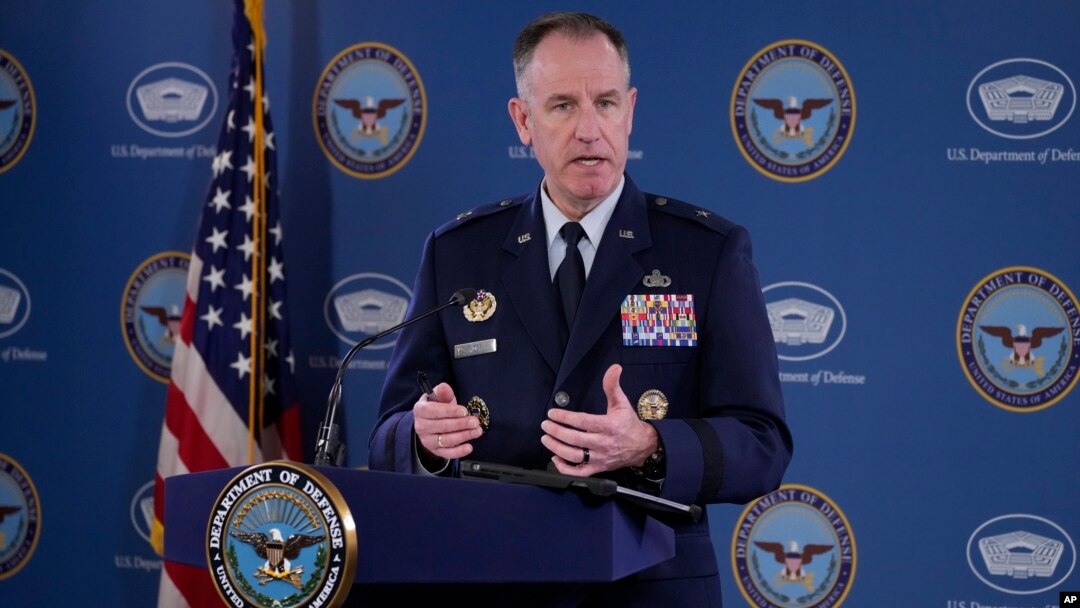The four attacks on U.S. forces in Syria by Iranian-backed militants last week, including one attack that killed a U.S. contractor, resulted in at least six traumatic brain injuries in service members, Pentagon press secretary Brigadier General Pat Ryder told reporters on Thursday.
In the first attack, last Thursday at a base near Hasakah, a suicide drone of Iranian origin killed a U.S. military contractor, wounded five U.S. service members and one other contractor, and caused four traumatic brain injuries in service members, according to the U.S. military.
One U.S. military source, speaking to VOA on condition of anonymity because the person was not authorized to speak to reporters, said the drone used in the attack was an Iranian-made Qasef-1.
The U.S retaliated last Thursday with what U.S. Central Command called proportionate and deliberate precision strikes against multiple facilities used by groups affiliated with Iran’s Islamic Revolutionary Guards Corps.
“No group will strike our troops with impunity,” Secretary of Defense Lloyd Austin said last week.
Ryder said eight militants associated with the IRGC were killed in the U.S. strikes. The Syrian Observatory for Human Rights said at the time of the strikes that 19 had been killed.
On the evening of March 24 and the morning of March 25, CENTCOM said, three attacks targeted U.S. and coalition forces in Syria, two attacks at a post known as Green Village and another at Mission Support Site Conoco. A military official told VOA these Iranian-backed attacks were coordinated and “showed a higher level of sophistication” than some of the previous attacks.
One U.S. service member was wounded in the attack on Conoco, and at least two traumatic brain injuries in service members resulted from the attacks targeting Green Village.
The Pentagon says the traumatic brain injuries were identified during post-attack screenings that are ongoing.
Asked by VOA why the U.S. military had not retaliated for the injuries that resulted in these three attacks, Ryder said, “We will continue to take appropriate action at a time and place of our choosing to ensure that our forces are protected.”
The U.S. has about 900 troops in eastern Syria to help Syrian Kurdish forces prevent a resurgence of the Islamic State terror group.
Austin told senators on Tuesday that Iran or its proxies have carried out 83 attacks on U.S. forces in the Middle East since President Joe Biden took office in 2021.
The United States has retaliated by launching four major strikes against the attackers.
Senator Tom Cotton, a Republican, challenged the adequacy of that response while questioning Austin during a Senate hearing on Tuesday.
"What kind of signal do we think this sends to Iran when they can attack us 83 times since Joe Biden has become president, and we only respond to four?” he asked. “Maybe it's because they know that ... we will not retaliate until they kill an American, which emboldened them to keep launching these attacks which kill Americans."


